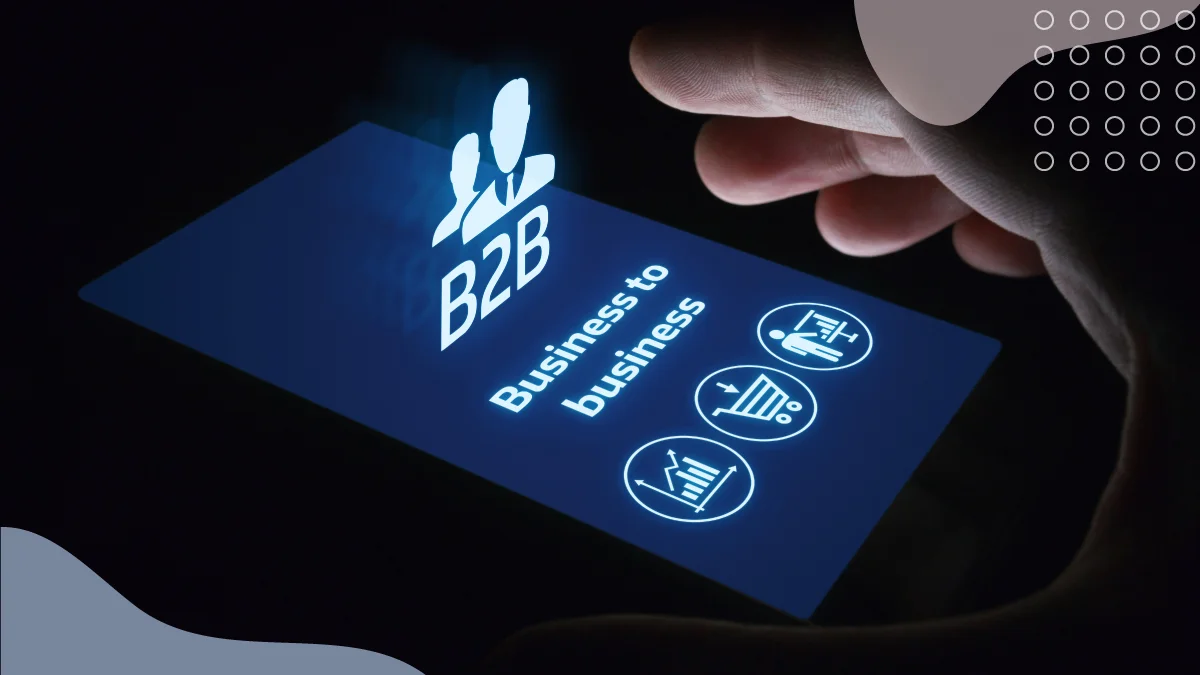
When it comes to business-to-business (B2B) commerce, relationships are the key to success. Unlike business-to-consumer (B2C) transactions, where impulse buying and individual preferences often dictate purchases, B2B sales are typically driven by long-term partnerships and trust. For B2B companies looking to maximize revenue, fostering strong relationships with clients and customers is paramount.
Here are a few tips to help B2B companies turn those relationships into revenue.

#1 Prioritize Personalization
In B2B relationships, one size does not fit all. Personalization is key to nurturing meaningful connections with clients and customers. This means understanding their unique needs, challenges, and goals and tailoring your products or services accordingly.
Take the time to gather data about your clients’ businesses, industries, and pain points, ideally through the account mapping process. Your sales team can then use this information to customize your offerings, communications, and interactions for the target company.
According to Prolifiq, account mapping allows you to identify key stakeholders and map their relationships within the organization. Sales professionals or top decision makers make the most of account mapping to build key relationships with the client organization.
From personalized email campaigns to targeted marketing, demonstrating that you value your clients’ needs will go a long way in building trust and loyalty. This will ultimately lead to increased revenue for your B2B company.
#2 Focus on Communication and Transparency
Open and transparent communication is essential in any relationship, and B2B partnerships are no exception. Keep the lines of communication open at all times, and be proactive in addressing any concerns or issues that may arise. This includes providing regular updates on project progress, being honest about challenges or delays, and actively seeking feedback from your clients.
According to Forbes, clarity and active listening are integral parts of business communication. These two elements, alongside nonverbal communication or your body language, are vital for clear communication, especially during meetings. Moreover, clear communication helps to avoid misunderstandings or misaligned expectations, which can ultimately lead to lost revenue.

#3 Build Trust Through Consistency and Reliability
Trust is the foundation of any successful relationship, and consistency and reliability are the building blocks of trust. Deliver on your promises, meet deadlines, and consistently exceed expectations to earn the trust of your clients. This means maintaining high standards of quality and consistency across all aspects of your business, from product to customer support and beyond.
By consistently delivering value and demonstrating reliability, you’ll build a reputation as a trustworthy partner that clients can rely on.
#4 Offer Value Beyond the Sale
The best B2B relationships extend beyond the initial transaction. To truly differentiate yourself and maximize revenue opportunities, focus on providing ongoing value to your clients even after the sale is made. This could take the form of post-sale support, training and education resources, or exclusive access to industry insights and best practices.
According to Indeed, strong post-sales services are vital in retaining customers and their loyalty. Customers who feel cared for, even post-sales, are more likely to value the brand. That also means they are likely to return as customers or clients again.
By demonstrating your commitment to your clients’ long-term success, you’ll deepen your relationships and increase the likelihood of repeat business and referrals. Remember, happy customers are more likely to become repeat customers and advocates for your brand, driving sustainable revenue growth in the long run.

#5 Invest in Relationship Management Tools and Processes
Managing B2B relationships effectively requires the right tools and processes. Invest in customer relationship management (CRM) software and other relationship management tools to help you track interactions, manage contacts, and stay organized. According to Business, such CRM software will cost you between $15 and $250 per month per user.
Establish clear processes and protocols for managing client relationships, from onboarding new clients to resolving issues and collecting feedback. By streamlining your relationship management efforts, you’ll be better equipped to nurture and grow your client relationships over time.
#6 Stay Agile and Adapt to Changing Needs
B2B companies must be prepared to adapt to changing market conditions, emerging trends, and evolving client needs. Stay informed about industry developments, monitor changes in your clients’ businesses, and be proactive in adjusting your offerings and strategies accordingly.
Whether it’s introducing new products or revising your marketing approach, be willing to pivot and evolve to better meet the needs of your clients. By staying agile and adaptable, you can strengthen your relationships and increase revenue opportunities.

In conclusion, turning relationships into revenue requires a strategic and holistic approach. By keeping these tips in mind, B2B companies can drive sustainable revenue growth and achieve their business goals in today’s competitive marketplace.









